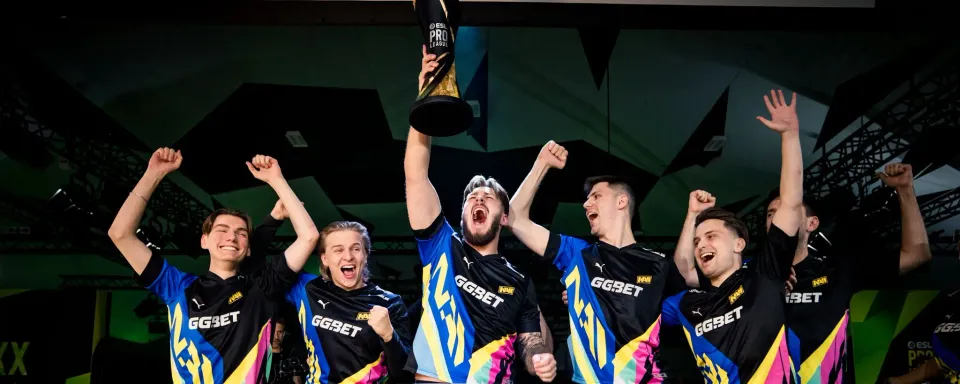11:03, 18.10.2024

ESL has announced its competitive calendar for 2025, bringing notable changes in formats and slot allocations for teams. Among the innovations are changes in ESL Pro League and a complete overhaul of the invitation process for events, which will now be based on the global Valve ranking.
The main intrigue lies in how ESL's approach to forming the participant list will change, as well as the new format for ESL Pro League. Specifically, the reduction in the number of teams and the introduction of the Swiss system, as seen in majors, promise to impact the balance of power on the scene. Simplifying processes and reducing the number of qualifications may change traditional notions of how teams qualify for the year's main tournaments.
Valve Rules and Esports Reforms
From 2025, ESL is forced to adapt to new Valve rules that regulate the operation of tournament organizers in the CS discipline. These changes include stricter conditions for team selection and the globalization of the ranking system. After PGL and BLAST presented their approaches to tournament organization, ESL caught up with its own announcements, also based on the global Valve ranking and promising even more focus on top global teams.
The #ESLProTour returns in 2025!
— ESL Counter-Strike (@ESLCS) October 18, 2024
💰$22M+ financial contribution for '25 & '26
🙏All BO5 finals
💀No more BO1 openers
🏆2 EPT Championships
🥇5 EPT Masters events
🎫#IEM Katowice & Cologne tickets on sale next week
Read our blog below for dates & details on all the changes 👇 pic.twitter.com/jqJEPTYqp2
In the past, ESL invited teams based on their own rankings and tournament victories. However, from 2025, selection for all major ESL events, including IEM Katowice and Cologne, will fully depend on the global ranking positions of the teams.
Specific Changes in the Calendar and Tournament Formats
Flagship ESL tournaments — IEM Katowice and Cologne — will retain their three-stage formats but with a key innovation: all 24 teams will now be invited solely based on the global Valve ranking, without additional slots for teams through local qualifiers.
IEM Katowice will take place from January 29 to February 9, and IEM Cologne — from July 23 to August 3. Both tournaments will include:
- The first stage with 16 teams in a double-elimination BO3 format.
- The second stage, where the top 8 from the first stage will be joined by 8 more teams based on Valve rankings.
- The six best teams will advance to the playoffs in a single-elimination format.
IEM Spring (April 21-27) and IEM Chengdu (November 3-9) will also maintain the current format with 16 teams and two double-elimination groups, but without open qualifiers. Participants will be invited based on rankings considering regional representation.
IEM Dallas (May 19-25) will retain the format where half of the teams are invited based on rankings, while the other half will go through qualifying stages.

Major changes await ESL Pro League. Season 21 will run from February 25 to March 16, with 24 teams instead of the usual 32. The tournament will switch to the Swiss system, except all matches will be BO3. Half of the participants will be invited based on the Valve ranking, and others will qualify through ESL Challenger leagues and previous tournament winners. Season 22, scheduled for September 23 – October 12, will maintain this structure with minor changes in the invitation and qualification system.

Significance of the Changes
These changes aim to enhance the quality of tournaments by focusing on the world's strongest teams and optimizing the selection process. This will allow viewers to witness more exciting matches between top teams. Additionally, the reduction in qualification time and increased role of the global ranking will make the team preparation process more transparent and understandable to a wider audience.
In conclusion, ESL is ready to offer a new approach to tournament organization, which undoubtedly makes competitions more predictable and structured, potentially significantly altering the balance of power on the international CS scene.
Source: ESL
Comments
Upcoming Top Matches
Latest top news







No comments yet! Be the first one to react